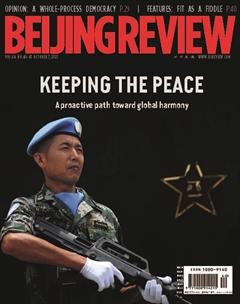The People Are Central to China’s Vision of Democracy
From the people, to the people and with the people. Qin Gang, Chinese Ambassador to the U.S., highlighted these salient features of Chinas whole-process democracy during an online conversation held by the Carter Center and the George H. W. Bush Foundation for U.S.-China Relations on September 22. This is an edited excerpt of his views:
The idea of putting people first has been part of the Chinese DNA since ancient times. Confucius, an ancient Chinese thinker who lived during the same time that ancient Greece existed, raised the idea that people are the foundation of a country. Mencius, Confucius follower, said, “To a state, the people are the most important thing. The state comes second. The ruler is the least important.”
An ancient Chinese ruler believed that the people are to the monarch what water is to a boat, and he cautioned that the water can carry the boat; but it can also overturn the boat. One hundred years ago, the Communist Party of China(CPC) was established as a political party for the poor and, since then, its founding mission has been to pursue happiness for the people. With the slogans of anti-dictatorship, anti-autocracy and anti-oppression, it enabled the people to become masters of their own country and, in doing so, won the peoples hearts. As the governing party, it has remained faithful to its founding mission: being people-centered and serving the people wholeheartedly.
What China has today is a whole-process democracy. Chinas Constitution prescribes that all power belongs to the people. The people have the right to elections, and they can be broadly involved in national governance according to law. They exercise state power through the National Peoples Congress and local peoples congresses at different levels, equivalent to Americas Congress and state legislatures. Deputies to the peoples congresses at the county and township levels are directly elected. Those above the county level are indirectly elected. People elect deputies, who will politically represent them and elect leaders. Deputies maintain close contact with the people, and all major legislations and decisions are made through scientific and democratic processes as well as extensive consultations.
China also features a unique system of political consultation and corresponding institutions, which are important ways for the people to participate in democracy. Any matters that concern peoples keen interests are discussed by peoples congresses, the government, the political consultative conference, social organizations and industry associations, before major decisions are made, to make sure that what the people want is reflected in the final decisions.

